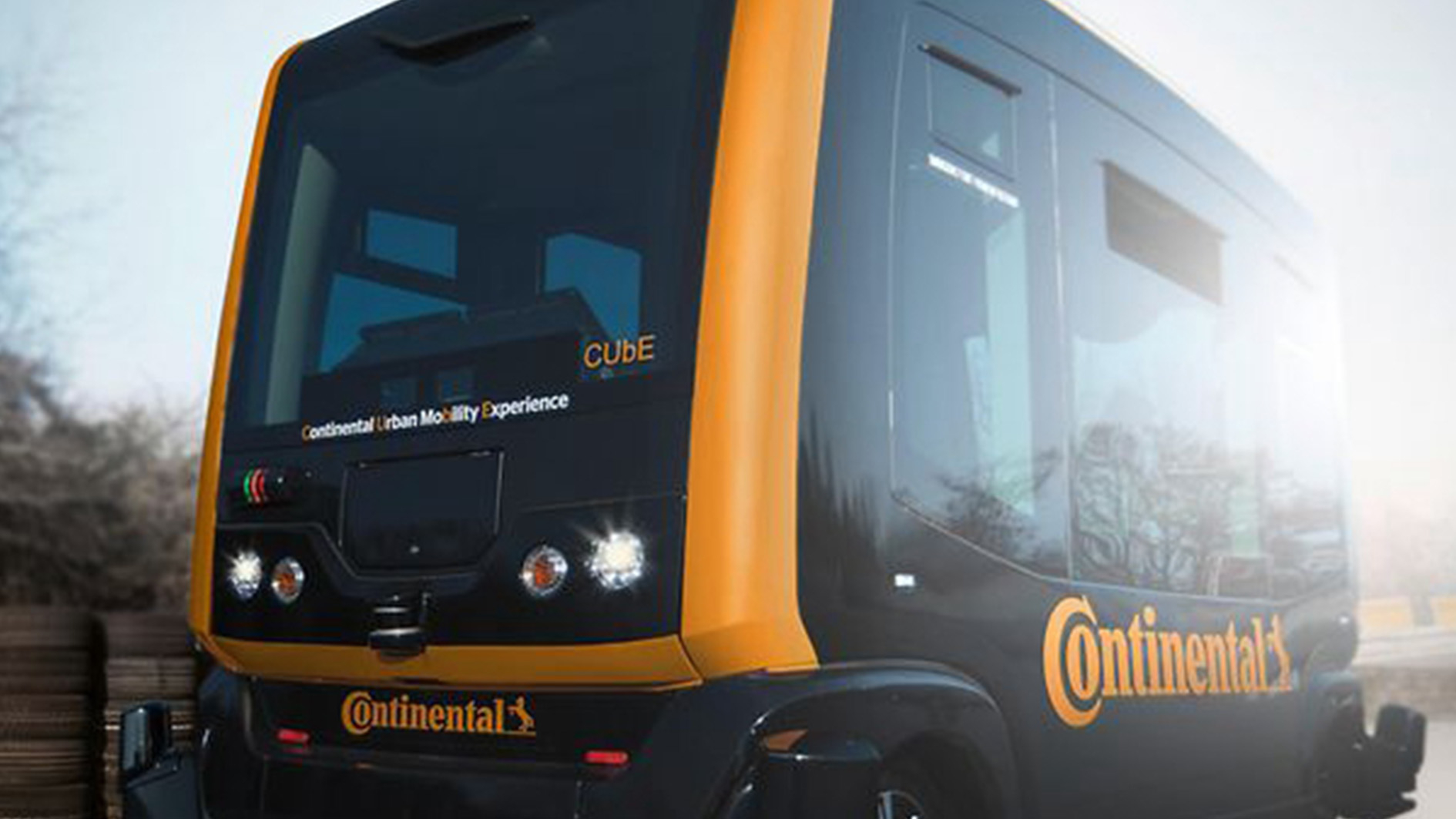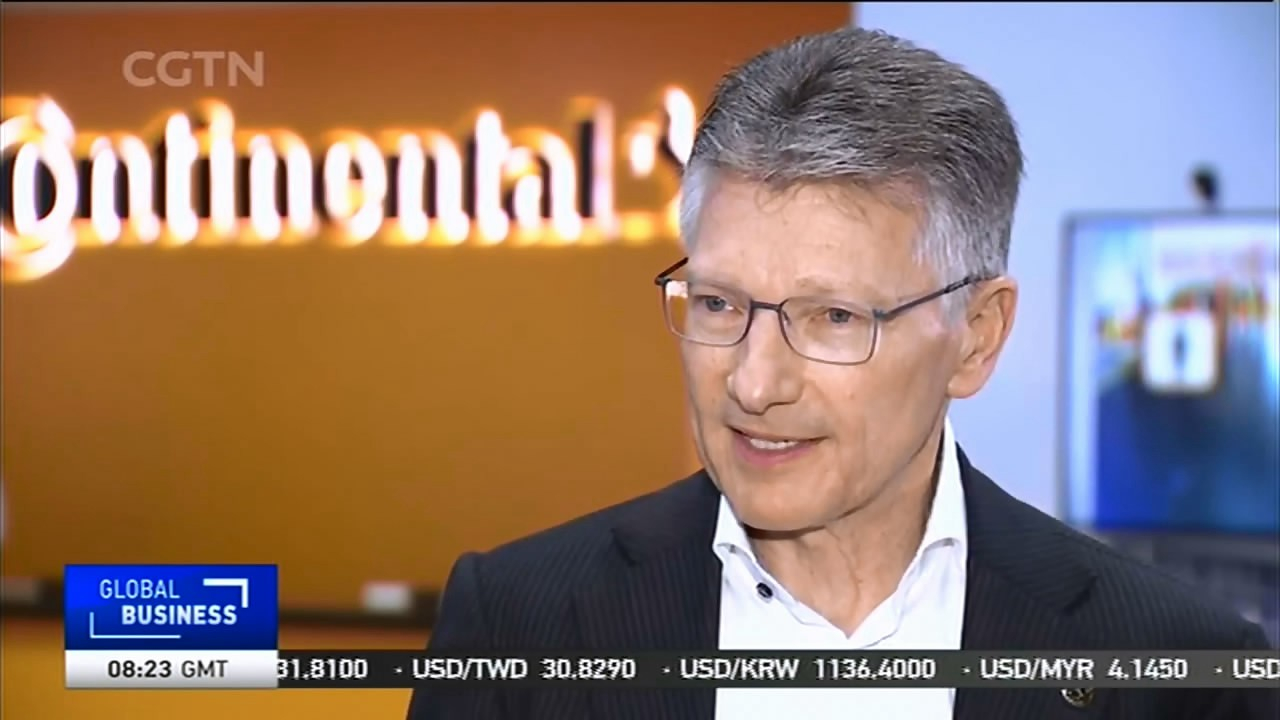
Money Stories
21:18, 18-Apr-2019
Continental CEO: China's auto market to pick up in H2, but not at same speed as 3-4 years ago
Global Business
04:09

Auto companies started the year on a low note with weak first quarter sales in China. Elmar Degenhart, CEO of top tier supplier Continental AG believed auto sales in China would pick up in the second half, but “not with the same speed as three or four years ago.”
Based on his words, the second half of 2019 would compare to “a relatively weak second half year of 2018. That should be helpful.” And he thought that government is to launch some stimulative measures to shore up the market. Meanwhile, the CEO mentioned that any outcome from trade talk between China and the United Stated would “psychologically” encourage market sentiment.
And Degenhart is optimistic that the company would continue to outperform in the market after the four-percent rise in 2018.
“Last year in automotive side, we outperformed the market, in terms of production figures, by four percent. China made significant contribution. And we are optimistic that we can do this in 2019 again. So we will continue to grow, not with the same speed as three or four years ago,” he said.

CGTN Photo
CGTN Photo
Continental to change to adapt to the complexity of the market
Continental last year carved out its Powertrain division via an IPO into a separate publicly traded company. The CEO explained that decision which flattened corporate structure is to adapt to market changes.
“The automotive growth is getting more and more complex,” the CEO said, “for the sake of autonomous driving functionality, connectivity, and the realization of alternative powertrains, we need more and more to work in networks, forming cooperation.”
For example, Continental is cooperating with China Telecom, Baidu and Didi in the country, “to be able to connect the vehicle to the cloud, to realize ecosystems and to realize service functions for consumers.”
Meanwhile, due to the increasing complexity of the market, Continental – known for hardware, also pays attention to software.
“The hardware will definitely not disappear. But software is contributing to the premium type of vehicle by about ten percent today. And this number will go up in next ten years to 30 percent,” Degenhart said.
“We have to have the capability to form a partnership in a sustainable manner. Functions bringing into the vehicle to realize autonomous driving and connectivity will increase significantly. Therefore, everybody is keen to enhance its software competence and capability. That's what we are doing,” the CEO commented.
Degenhart also predicted that “the amount of software needed would increase by ten times in the next ten years – from the current one million lines of codes to 100 million lines of codes”, and automotive software would be worth of 1.3 trillion U.S. dollars by 2030.
“When we connect the vehicle to the cloud, we need to apply cyber security functionality into the vehicle, which was not a requirement five years ago,” he said. And that also explained why Continental acquired Israeli startup Argus – “to enhance cybersecurity competence in this area.”

SITEMAP
Copyright © 2018 CGTN. Beijing ICP prepared NO.16065310-3
Copyright © 2018 CGTN. Beijing ICP prepared NO.16065310-3